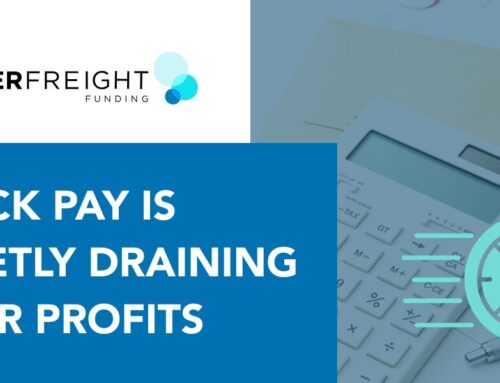The Department of Transportation (DoT) defines double brokering as the illegal act of creating a deal involving two or more licenses. These arrangements are common in the United States transportation industry. The DoT argues that at least 70% of the loads on the Load Board experience double brokering, which leads to financial challenges for motor carriers and legitimate brokers.
Jump To Section
It’s possible to spot double brokering when you understand it and know how to vet the source of a load. Identifying and avoiding this practice can help you avoid losses and develop long-term relationships with your customers.
Examples of Double Brokering
Double brokering can take place in two ways:
- A shipper gives their freight to the broker under the impression that the load will move to the proper carrier, but the broker sends the freight to a secondary broker without the other parties’ knowledge.
- A carrier gives a load to another carrier.
In both cases, the shipper faces the risk of financial loss when the load gets stolen or they pay double freight charges.
How to Spot Double Brokering
You can detect double brokering in various ways. The Federal Motor Carrier Safety Administration (FMCSA) recommends watching out for the following signs:
- The broker requests that the carrier use a different name — not the carrier’s — with the shipper.
- The bill of lading (BOL) shows a different carrier or broker than the one you had planned to work with.
- Verify that the information you have is correct, including the broker’s email domain, physical address and phone number. You can do so with the details on Safer, FMCSA or by researching them on your own. Compare your BOL to other documents. If you see discrepancies between phone numbers, call the one on Safer and tell the company what you see.
- The load’s destination is labeled as a ‘’blind load” instead of a real location.
- Instead of bargaining, the broker consents to pay you a rate that seems to be too good to be true.
- The broker cannot or will not tell you who they work for.
Is Double Brokering Illegal in the U.S.?
Double brokering is illegal because the second broker or carrier is usually not registered under the FMCSA. The authority requires motor carriers and brokers to acquire registration that shows they have fulfilled the requirements to conduct business. You can see the various types of authorities listed on the regulator’s website to acquire the right license.
What Happens If You Double Broker?
Double brokering has consequences such as:
- The carrier is not paid for their work leading to financial losses and potential loss of customers
- The load can be uninsured, leading to losses in case of uncovered damages
- Legal repercussions cost all parties money and time
- The FMCSA may cancel a carrier’s license and flag the company, leading to closure of the business
- The goods may get stolen
- The insurance company may not cover accidents that occur in this case, including loss of life
What Actions Can a Carrier Take After Hauling a Double-Brokered Load Unknowingly?
A carrier should notify the shipper and receiver when they become aware of the double brokering, as the parties paying for these services are likely unaware. If the load has not yet been paid for, that party can use the necessary documents to identify and pay the carrier. Doing so will also ensure the shipper discovers the company using illegal practices and will no longer work with them.
Porter Freight Can Help With Double Brokering Issues
Porter Freight Funding offers freight factoring services that help your business access dedicated client representatives through flexible contracts, flat-rate pricing and same-funding on invoices. Many trucking companies use our services to boost cash flow and streamline their operations and tax process. Request a quote at no cost when you apply now, or contact us for more details about our offerings.





